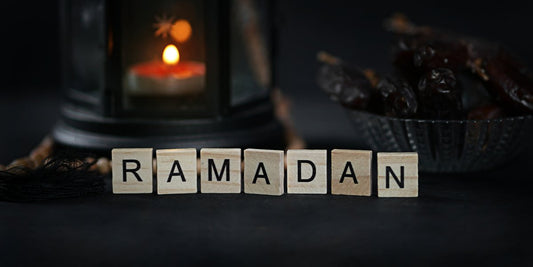Staying fit and maintaining a healthy lifestyle is essential for overall well-being. For those adhering to a Halal diet, it is entirely possible to achieve fitness goals without compromising on dietary restrictions. This article explores how to stay fit while following a Halal diet, offering practical advice and guidelines to help you lead a healthy life.
What Is Halal?
The term "halal" is an Arabic word that translates to "permissible" in English. It refers to anything that is allowed under Islamic law, as defined by the Quran and Hadiths (the sayings and practices of the Prophet Muhammad). This encompasses a wide range of activities, but when it comes to food, it specifically denotes what is permissible to consume. Halal food adheres to stringent dietary guidelines, ensuring it is pure, clean, and free from any substances that are forbidden or harmful.
Understand the Basics of a Halal Diet
A halal diet is guided by clear principles set forth in Islamic teachings. These principles ensure that the food consumed is both physically and spiritually clean. There are a few key elements that define a halal diet:
- Source of Meat: Meat must come from animals that are slaughtered in a specific manner known as 'zabiha'. This process involves invoking the name of Allah and then swiftly cutting the throat, windpipe, and blood vessels in the neck, ensuring the blood is drained from the veins. This method is believed to be more humane and ensures the meat is clean.
- No Pork: Pork and its by-products are strictly forbidden. This includes any food items or ingredients derived from pigs.
- No Alcohol: Any form of intoxicants, including alcohol, is not allowed. This restriction extends to any food or beverage that contains alcohol as an ingredient.
- Avoidance of Certain Additives: Some food additives, such as gelatin (unless it is sourced from halal animals) and certain enzymes, may be prohibited if they are derived from non-halal sources.
- Ethical and Clean Practices: Halal foods should be prepared, processed, and stored using equipment and utensils that have been cleansed according to Islamic principles to avoid contamination from non-halal substances.
What Can You Eat On A Halal Diet?
Adhering to a halal diet does not mean a lack of variety or flavour. There is a wide range of food items that are permissible and can be incorporated into a healthy and balanced diet. Here are some categories of halal foods:
- Fruits and Vegetables: All fruits and vegetables are halal, making them a versatile and vital part of a halal diet. They provide essential vitamins, minerals, and fibre.
- Grains and Legumes: Foods like rice, wheat, barley, lentils, chickpeas, and beans are all halal and are excellent sources of energy, protein, and fibre.
- Dairy Products: Milk, cheese, yoghurt, and other dairy products are generally halal as long as they do not contain non-halal additives like gelatin or rennet derived from non-halal sources.
- Meat and Poultry: As mentioned, meat must be slaughtered according to halal guidelines. Common halal meats include chicken, beef, lamb, and goat. Ensure any processed meats, such as sausages or deli meats, are certified halal.
- Seafood: Most seafood is considered halal without the need for special slaughter procedures. This includes fish, shrimp, and shellfish.
- Beverages: Water, milk, fruit juices, and soft drinks are permissible, provided they do not contain alcohol or non-halal additives.
How To Follow A Halal Diet?
Maintaining a fit and healthy lifestyle while following a halal diet involves careful planning and mindful eating. Here are some practical tips:
- Meal Planning: Plan your meals around a variety of food groups to ensure a balanced intake of nutrients. Include plenty of fruits, vegetables, whole grains, and lean proteins in your diet.
- Cooking at Home: Preparing meals at home allows you to control the ingredients and cooking methods. This ensures that your food is both halal and healthy. Use halal-certified ingredients and avoid deep-frying or excessive use of oils and fats.
- Reading Labels: When purchasing packaged foods, always check the labels for halal certification. Look for symbols or words like "halal" or certifications from recognised halal certifying bodies.
- Eating Out: Many restaurants offer halal options, especially in areas with significant Muslim populations. When dining out, inquire about halal certifications and food preparation methods to ensure compliance.
- Moderation and Portion Control: Like any diet, moderation is key. Be mindful of portion sizes and avoid overeating, even with halal foods. Balance your meals with adequate portions of protein, carbohydrates, and fats.
- Physical Activity: Pair your halal diet with regular physical activity. Exercise is crucial for overall fitness and can help maintain a healthy weight. Aim for at least 150 minutes of moderate-intensity aerobic activity or 75 minutes of vigorous-intensity activity each week, combined with muscle-strengthening exercises.
- Hydration: Drink plenty of water throughout the day. Proper hydration is essential for bodily functions and overall health. Avoid sugary drinks and excessive caffeine.
- Healthy Cooking Methods: Opt for healthier cooking methods like grilling, baking, steaming, or sautéing instead of frying. This helps retain the nutritional value of foods while reducing unnecessary fat and calorie intake.
Conclusion
Maintaining fitness while adhering to a Halal diet is not only possible but can be highly rewarding. By understanding the principles of a Halal diet and making informed choices, you can enjoy a variety of healthy and delicious foods that support your fitness goals. Remember to plan your meals, read labels carefully, stay hydrated, control portions, exercise regularly, and opt for healthy cooking methods. With these strategies, you can lead a fit and healthy lifestyle while honouring your dietary commitments.
Following a Halal diet does not have to be a barrier to achieving your fitness goals. With the right knowledge and approach, you can maintain both your health and your religious obligations seamlessly.

![How to Stay Fit While Following a Halal Diet [Complete Guide] - HalalWorldDepot](http://www.halalworlddepot.com/cdn/shop/articles/how-to-stay-fit-while-following-a-halal-diet-complete-guide-132954_aab631a0-d50a-4de8-974c-554a72e600f4.jpg?v=1739900835&width=1100)



